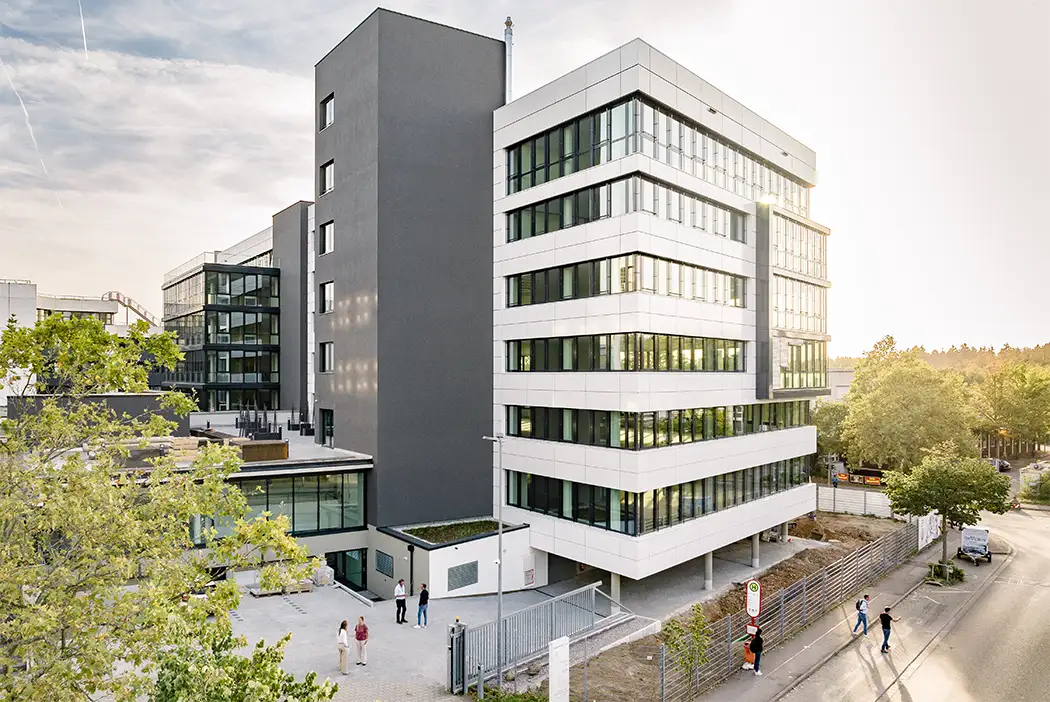The annual Digital Society Index provides insightful findings on the digital transformation. This year, the index once again highlights key topics and fields of action for the Haufe Group.
What is the state of digitalisation in Germany and how well is our society facing the challenges of digital change? The D21 Digital Index has been investigating these questions annually since 2013. This year's study focuses on people's digital participation and their resilience in the digital transformation, digital value creation, different views on the influence of digitalisation on democracy and the interactions with the green transformation.
The Haufe Group supports the study of the Initiative D21, conducted by Kantar and under the patronage of the Federal Minister for Economic Affairs and Climate Protection Robert Habeck, and thus advocates a responsible, opportunity-oriented and sustainable design of the digital transformation. This must be actively shaped, provide access to as many people as possible, highlight opportunities and ensure participation. "We see the digital transformation as an opportunity for people and companies and want to play our part in actively shaping it. The Digital Index offers important insights into corresponding fields of action and necessary approaches to solutions," emphasises Birte Hackenjos, CEO of the Haufe Group. "This allows us to understand even better where and how we can act responsibly and sustainably as a company and employer."
The good news is that for the vast majority of people in Germany, digitalisation is an integral part of their lives. More than half of the citizens (55 percent) belong to the digital middle class, which can keep up well with the digital transformation, 30 percent even belong to the digital professionals. In addition, according to the index, 64 percent of citizens have important resilience factors that are necessary for the digital transformation. When it comes to the influence of digitalisation, the population is divided: 56 percent believe that digitalisation has a positive effect on democracy. One in four, on the other hand, believes it will have a negative effect. In this context, disinformation is named by 64 percent as one of the greatest risks to democracy.
Particularly striking in the area of digital value creation: professionals continue to underestimate the impact of the digital transformation on our working world and, above all, the substitutability potential of their own jobs. While 80 percent of those surveyed consider it likely that entire professions will no longer exist by 2035 due to digitalisation, only 19 percent believe that their own job could be affected. For Birte Hackenjos, CEO of the Haufe Group, there is a clear need for action here, also and especially on the part of business: "The further development and expansion of resilience and digital skills is one of the most important tasks for the future in order to be able to keep pace with the constant change in the world of work. Businesses need to address digital transformation in a proactive and forward-looking way." Most professionals (61 per cent) believe they are benefiting from digitalisation, with only a slim majority (58 per cent) attesting to their employers taking the necessary steps for digital transformation. Only 16 percent state that they have taken advantage of training and further education offers on the topic of digitalisation in the last 12 months that were paid for by their employers. The Haufe Group is making an important contribution here with the extensive range of training and qualifications offered by the Haufe Akademie.
HERE you can find the D21 Digital Index 2022/2023.





.jpg)
